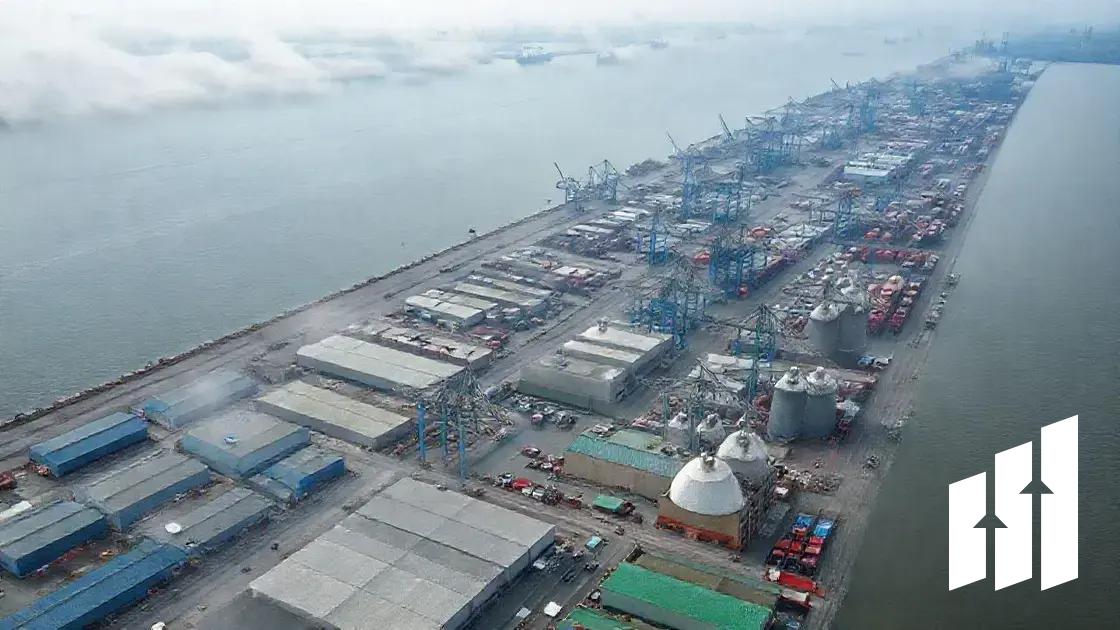The impact of China’s currency devaluation on European trade is significant, as it can lead to cheaper imports from China, affecting trade balances. European policymakers may respond by adjusting trade policies, implementing tariffs, and investing in local industries to enhance competitiveness. Historical examples suggest that past devaluation practices offer valuable lessons regarding risks and benefits. Innovation will also play a crucial role in helping European businesses navigate these challenges effectively while maintaining economic stability.
Currency Devaluation is shaping the economic narrative today, especially for Europe. Recent moves by China have raised eyebrows and prompted discussions on trade balances and export strategies. What does this mean for the European market?
The context of China’s currency management
China’s approach to currency management is crucial in today’s global economy. The government closely oversees the Chinese Yuan, also known as the Renminbi. This helps to stabilize the currency and support trade.
What is Currency Management? It involves controlling the value of a country’s currency. The aim is often to ensure stability and competitiveness in international trade. By managing the Yuan, China can influence the prices of its exports and imports.
In recent years, China’s leaders have shifted from a strict peg to a more flexible regime. This means the Yuan can fluctuate against foreign currencies like the US Dollar and Euro. Such changes can impact trade balances and economic growth.
Additionally, authorities in China regularly intervene in the currency market. This can include buying or selling Yuan to manage its value. They believe that a strong Yuan makes imports cheaper and can help strengthen the economy.
Overall, understanding China’s currency management helps us see its impact on global trade dynamics. It explains why fluctuations can create waves across international markets.
Current state of the Yuan against major currencies
The current state of the Yuan shows some interesting trends. Recently, the Chinese Yuan has fluctuated against major currencies like the US Dollar and the Euro. These changes matter for trade and investment.
As of now, the Yuan is slightly weaker compared to the US Dollar. This can make Chinese goods cheaper for foreign buyers. A weaker Yuan might boost exports, which is important for China’s economy.
What’s affecting these shifts? Several factors play a role. Economic data, trade policies, and global market sentiments influence currency values. Investors pay close attention to China’s economic reports. Strong growth can strengthen the Yuan, while slowdowns can weaken it.
Additionally, the Chinese government sometimes intervenes to stabilize the Yuan. They want to prevent extreme fluctuations that could harm the economy or trade relations.
Overall, the Yuan’s relationship with major currencies highlights the ongoing changes in the global economy. Keeping an eye on it is crucial for businesses and investors alike.
The implications for European trade balances
The implications of China’s currency policies are significant for European trade balances. When the Yuan fluctuates, it can change trade dynamics between China and Europe.
For instance, if the Yuan weakens, Chinese products become cheaper for European markets. European consumers may prefer these affordable goods, boosting imports from China. This can lead to a larger trade deficit for Europe, meaning they import more than they export.
What about European exports? A weaker Yuan can also impact European businesses exporting to China. Their products may become more expensive for Chinese buyers. This could lead to reduced sales and a shift in competitiveness.
Additionally, if European companies source materials from China, the cost could go up with a weaker Yuan. This raises production costs, affecting profit margins.
On the other hand, a strong Yuan might help balance trade. It makes European goods less expensive in China, promoting exports. This balance is essential for maintaining healthy trade relations.
Overall, understanding these implications helps businesses prepare for changes in trade policies and market conditions.
How devaluation affects Chinese exports
Devaluation can have a big impact on Chinese exports. When the Chinese Yuan loses value, it often makes Chinese products cheaper for buyers in other countries.
This means foreign customers can buy more goods at lower prices. As a result, Chinese companies may see an increase in orders from abroad. More sales can help boost China’s economy.
Why does this matter? A strong export market is crucial for China. It creates jobs and helps businesses grow. Increased demand for Chinese goods can lead to more factory production.
However, there are some challenges, too. While cheaper prices can boost sales, it can also lead to issues with profit margins. If the cost of raw materials rises, it might eat into profits.
Additionally, if other countries notice this trend, they could respond by adjusting their trade policies. Tariffs or trade barriers might be put in place to protect local industries.
In short, while devaluation can boost exports, it also brings potential risks that need to be monitored closely.
Experts weigh in on Beijing’s economic strategy
Experts have varied opinions on Beijing’s economic strategy. Many see it as a careful balancing act between growth and stability. China aims to maintain its rapid economic growth while addressing risks like debt and overcapacity.
One key focus is innovation. Analysts believe that China is trying to shift from being a manufacturer to a leader in technology. By investing in tech sectors, China hopes to boost its economy and create high-quality jobs.
Additionally, some experts point to the importance of trade relations. China needs to maintain good ties with other nations to support its exports. Trade policies will greatly influence how successful Beijing’s strategy will be.
However, there are concerns too. Some experts warn that strict government control may stifle creativity and slow growth in certain areas. This control can also lead to tensions with other countries.
Overall, the views on Beijing’s economic strategy reflect a mix of optimism and caution. It will be interesting to see how these strategies unfold in the coming years.
Historical parallels to past devaluation practices
Historical parallels to past devaluation practices provide interesting insights into economic strategies. Many countries have faced similar situations when managing their currencies. Learning from history can help us understand current trends.
For example, in the 1990s, several Asian countries devalued their currencies to boost exports. This strategy made their products cheaper and increased demand from foreign buyers. However, it also led to economic instability.
An important lesson from these events is that devaluation can bring both benefits and risks. While it may enhance competitiveness, it can also create debt issues and affect investor confidence.
Another example is Argentina, which faced economic turmoil in the early 2000s after devaluing its currency. This resulted in massive inflation and hardship for citizens. Such events highlight the need for careful management.
Overall, looking at historical cases helps economists evaluate the potential outcomes of devaluation today. Understanding these patterns can guide current economic decisions.
Potential responses from European policymakers
European policymakers are likely to respond to currency changes with a mix of strategies. They need to consider how China’s currency devaluation affects their economies.
One potential response is adjusting trade policies. Policymakers may implement tariffs or quotas to protect local businesses from cheaper Chinese imports. This aims to keep European products competitive.
Another response could involve strengthening currency ties. European nations might work together to ensure the Euro remains stable against the Yuan. This collaboration could help minimize risks in trade.
Additionally, policymakers could invest in domestic industries. By supporting local businesses and fostering innovation, Europe can reduce its reliance on imports. This is especially important in sectors vulnerable to foreign competition.
Finally, engaging in diplomatic talks with China could be crucial. Open discussions about trade practices can lead to better understanding and cooperation. This might ease tensions and support fair trade.
Overall, the responses from European policymakers will shape how the region navigates the changing economic landscape.
Conclusion
In conclusion, understanding the implications of China’s currency strategies is crucial for Europe and its trade dynamics. The ongoing fluctuations of the Yuan affect not just exports but also the broader economic landscape.
European policymakers must be proactive in their responses. This includes adjusting trade policies, supporting local industries, and engaging in dialogue with China. By taking these steps, Europe can better navigate the challenges posed by currency changes.
Ultimately, the interplay between currency valuation and trade practices will shape the future of economic relationships. Awareness and adaptability are key for all stakeholders involved. It’s important to stay informed and ready to act in this ever-evolving global market.
FAQ – Frequently Asked Questions about China’s Currency Strategy and European Trade
What effect does devaluation of the Yuan have on European trade?
Devaluation of the Yuan can make Chinese products cheaper for European countries, increasing imports and potentially leading to trade deficits.
How can European policymakers respond to currency fluctuations?
They can adjust trade policies, implement tariffs, and support local industries to protect against cheaper imports from China.
What historical examples inform current devaluation practices?
Past devaluation practices in countries like Argentina and several Asian nations during the 1990s highlight the benefits and risks involved.
Why is collaboration among European nations important?
Collaboration can help stabilize the Euro against the Yuan and ensure that Europe remains competitive in international markets.
How does currency valuation impact local businesses?
Fluctuations can affect pricing, demand, and profit margins, impacting business operations and competitiveness.
What role does innovation play in response to currency strategies?
Investing in innovation can help European businesses improve products and reduce dependence on imports, strengthening market positions.


 Miran Highlights Dual Goals of Fed and Interest Rate Outlook
Miran Highlights Dual Goals of Fed and Interest Rate Outlook  Are You a Robot? Unusual Activity Detected on Bloomberg
Are You a Robot? Unusual Activity Detected on Bloomberg  Keir Starmer Leads Business Delegation to India for Trade Pact
Keir Starmer Leads Business Delegation to India for Trade Pact  Takaichi Appoints Ex-Finance Minister as Secretary General of LDP
Takaichi Appoints Ex-Finance Minister as Secretary General of LDP  Argentina Continues Dollar Sales Amid Weakened Peso Crisis
Argentina Continues Dollar Sales Amid Weakened Peso Crisis  White House Calls on Democrats to Resolve Ongoing Government Shutdown
White House Calls on Democrats to Resolve Ongoing Government Shutdown